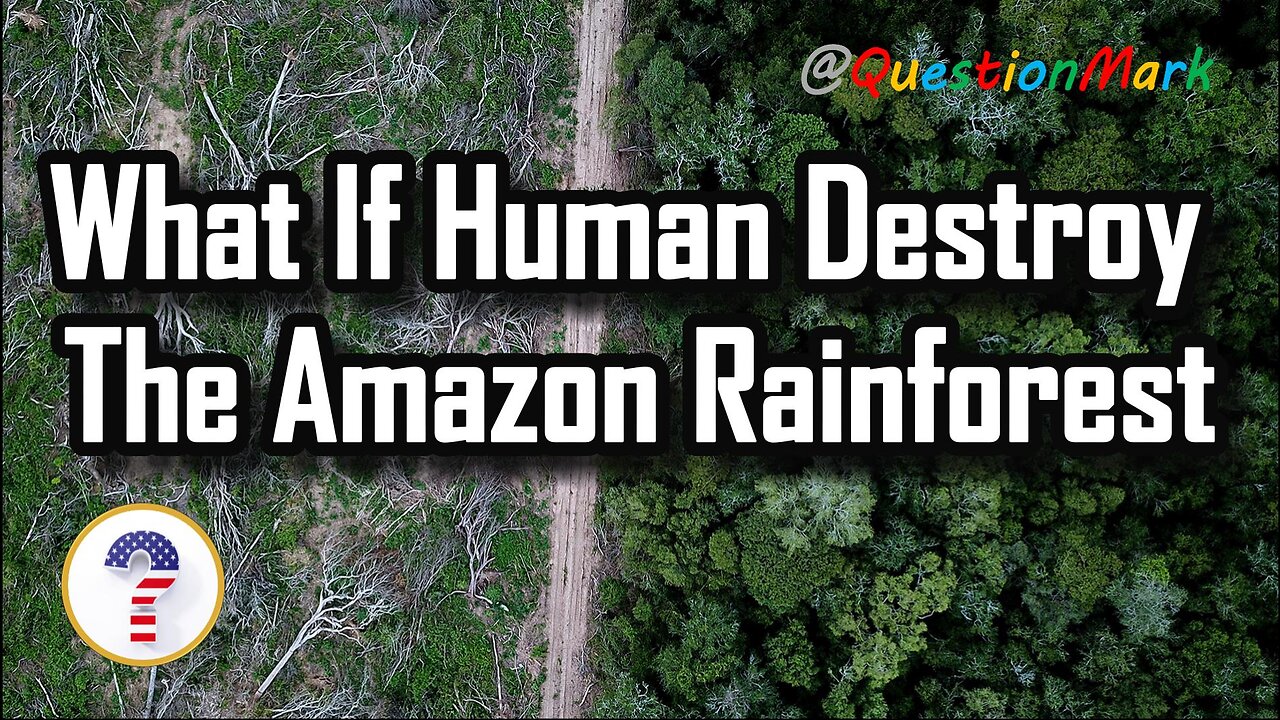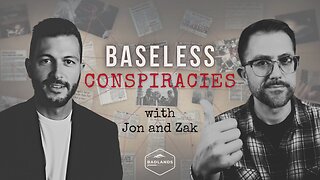Premium Only Content

What If Human Destroy The Amazon Rainforest?
Thank @BuzzFeedVideo and @TED and @Participant and @MrBeast for all the inspiration of this channel.
The Amazon rainforest is one of the most important and biodiverse ecosystems on the planet. Covering over 2 million square miles in South America, it plays a crucial role in regulating the Earth's climate and providing habitat for millions of species. However, human destruction of the Amazon rainforest has been a major concern for decades, with devastating consequences for both the environment and humanity.
Deforestation, or the clearing of trees, is one of the biggest threats to the Amazon rainforest. The trees in the Amazon rainforest absorb massive amounts of carbon dioxide, one of the greenhouse gases responsible for climate change. When these trees are cut down, the carbon they have stored is released into the atmosphere, exacerbating global warming. Deforestation also destroys habitats for countless species of plants and animals, contributing to a loss of biodiversity.
If human destruction of the Amazon rainforest continues at its current rate, the consequences will be dire. Here are some of the potential effects:
Climate Change: The Amazon rainforest is often referred to as the "lungs of the Earth" because it absorbs vast amounts of carbon dioxide and produces oxygen. If the Amazon rainforest continues to be destroyed, it will release billions of tons of carbon dioxide into the atmosphere, contributing to global warming and climate change. This could lead to more frequent and severe natural disasters such as hurricanes, floods, and droughts.
Biodiversity Loss: The Amazon rainforest is home to millions of species of plants and animals, many of which are found nowhere else on Earth. Deforestation destroys their habitats, and many species could become extinct as a result. This loss of biodiversity could have far-reaching consequences for ecosystems around the world, affecting everything from food production to disease control.
Indigenous Peoples: Many indigenous peoples call the Amazon rainforest home, and their traditional ways of life and livelihoods depend on the forest's resources. Deforestation threatens their survival and has already led to the displacement of many indigenous communities.
Water Cycle: The Amazon rainforest plays an important role in the water cycle, with trees drawing up water from the ground and releasing it into the atmosphere through a process called transpiration. This creates clouds, which then produce rainfall. If the rainforest is destroyed, this process could be disrupted, leading to less rainfall and more droughts in surrounding areas.
Economic Impact: The Amazon rainforest is also an important economic resource, providing jobs and income through industries such as agriculture, mining, and logging. However, these industries also contribute to deforestation, and their long-term sustainability is questionable if the rainforest is destroyed.
In short, the destruction of the Amazon rainforest would have far-reaching and devastating consequences for both the environment and humanity. It is crucial that we take action to protect and preserve this vital ecosystem. This includes reducing our carbon footprint, supporting conservation efforts, and holding companies and governments accountable for their actions in the region. By working together, we can ensure that the Amazon rainforest remains a vibrant and thriving ecosystem for generations to come.
-
 LIVE
LIVE
Lofi Girl
2 years agoSynthwave Radio 🌌 - beats to chill/game to
162 watching -
 2:33:04
2:33:04
Badlands Media
12 hours agoBaseless Conspiracies Ep. 147: Pole Shifts, Plasma Skies, and the Truth About Cataclysms
166K17 -
 4:33:42
4:33:42
Drew Hernandez
8 hours agoISRAEL BOMBS GAZA HOSPITAL ON LIVE TV KILLING AT LEAST 20 INCLUDING JOURNALISTS & CIVILIANS
20.8K39 -
 2:55:23
2:55:23
TimcastIRL
7 hours agoTrump Orders Specialized National Guard Units To Combat Crime In Cities, Dems Furious | Timcast IRL
205K142 -
 6:22:03
6:22:03
SpartakusLIVE
9 hours ago#1 Rocket CHAMPION of Verdansk wields UNSTOPPABLE new META
81.3K5 -
 2:55:11
2:55:11
Barry Cunningham
9 hours agoPRESIDENT TRUMP MADE TODAY A VERY BAD DAY TO BE A DEMOCRAT!
100K62 -
 1:15:29
1:15:29
Flyover Conservatives
1 day agoFrom Cool to Cringe: How Democrats Lost America’s Ear | FOC Show
48.1K14 -
 8:19
8:19
MattMorseTV
12 hours ago $7.72 earnedTrump is ACTUALLY DOING IT.
48.5K41 -
 11:30:43
11:30:43
ZWOGs
15 hours ago🔴LIVE IN 1440p! - Tarkov w/ Casey & crgoodw1n, Kingdom Come Deliverance, & More - Come Hang Out!
40.6K5 -
 2:30:56
2:30:56
We Like Shooting
19 hours ago $7.01 earnedWe Like Shooting 625 (Gun Podcast)
40.3K1